Many DHPA students undertake internships or volunteering to gain valuable experience in different work sectors. The University's ABDN Internships programme advertises opportunities at regular points across the year in MyCareerHub, while a range of volunteering roles are possible within University Collections. The bp Student Tutoring Scheme enables participants to volunteer with a local Primary or Secondary School, providing pupils with positive role models, and enabling students to develop their confidence and communication skills in new environments.
Click on the names to read more about some of our students' internship and volunteering experiences during their degrees at the University of Aberdeen.
- Kathryn Berry (History-International Relations)
-
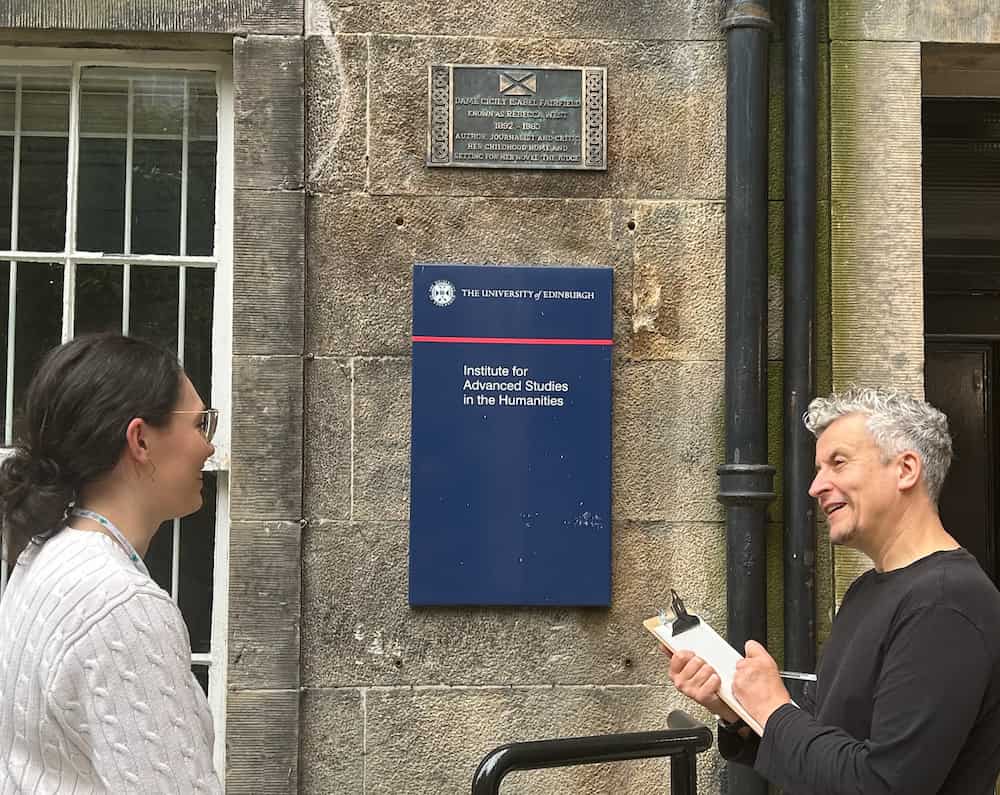
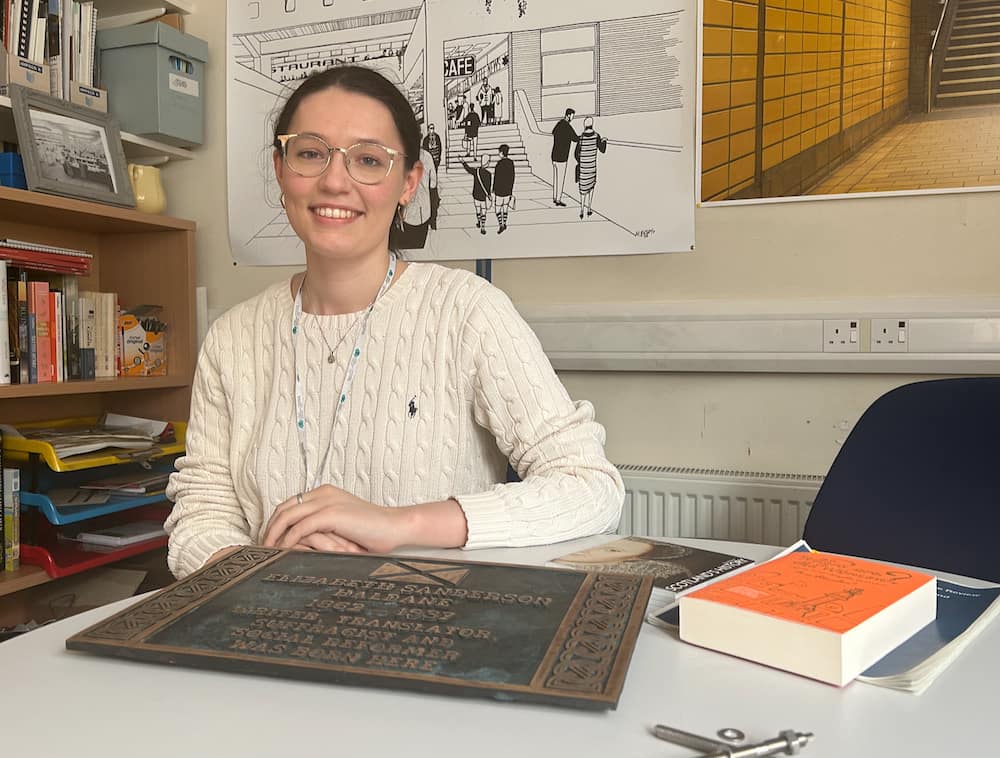
Kathryn completed an ABDN Internship with Historic Environment Scotland in the summer of 2024.
What motivated you to apply for the ABDN internship with Historic Environment Scotland?
I was motivated to apply for the ABDN internship with HES (focussing on their Commemorative Plaque Scheme) because I was approaching graduation from the University of Aberdeen and, after already gaining some experience in the museum sector and thoroughly enjoying the History half of my degree, I was keen to explore other avenues where I could apply the skills I'd developed during my studies to the advancement of public engagement with history.
What activities did you undertake? How has this experience complemented your academic studies?
Although the activities I undertook were based on Scottish History, which I didn't study during my undergraduate degree, I was able to apply the historical research skills I had developed during my studies to my internship tasks. I undertook a variety of research tasks such as research for biographical plaque webpages, researching and compiling a log of all regional and national plaque schemes, archival photo research, and researching how communities had engaged with HES plaques since they were installed.
I also undertook some work with the Comms Team - writing blog posts and creating social media content related to the Commemorative Plaque Scheme - which was great as I was able to develop new skills in Canva and historical writing for broad audiences.
What was the highlight of your placement?
Alongside working within a really supportive team at HES and having a great experience overall, visiting the foundry where the plaques are made stands out. I had already seen some commemorative plaques in the office, but it was great to be able to see where they come from and to learn about the process of making a plaque from start to finish.
Another highlight was when I was successful with a piece of photograph research. A search for a photograph of a plaque recipient had been underway before I arrived at HES (to no avail) and I was also unsuccessful in my initial online searches for a photo. However, I returned to the task towards the end of the internship and managed to source 2 photographs of the person as well as permission for HES to use them. It was a very exciting moment when I realised what I had found and shared the news with the team!
What advice would you give to anyone thinking about applying for an ABDN Internship?
Go for it! The ABDN Internship is a fantastic way to explore potential career avenues whilst developing existing and new skills. The University of Aberdeen Careers Service is also incredibly supportive and can provide advice on CVs, cover letters, and internship applications.
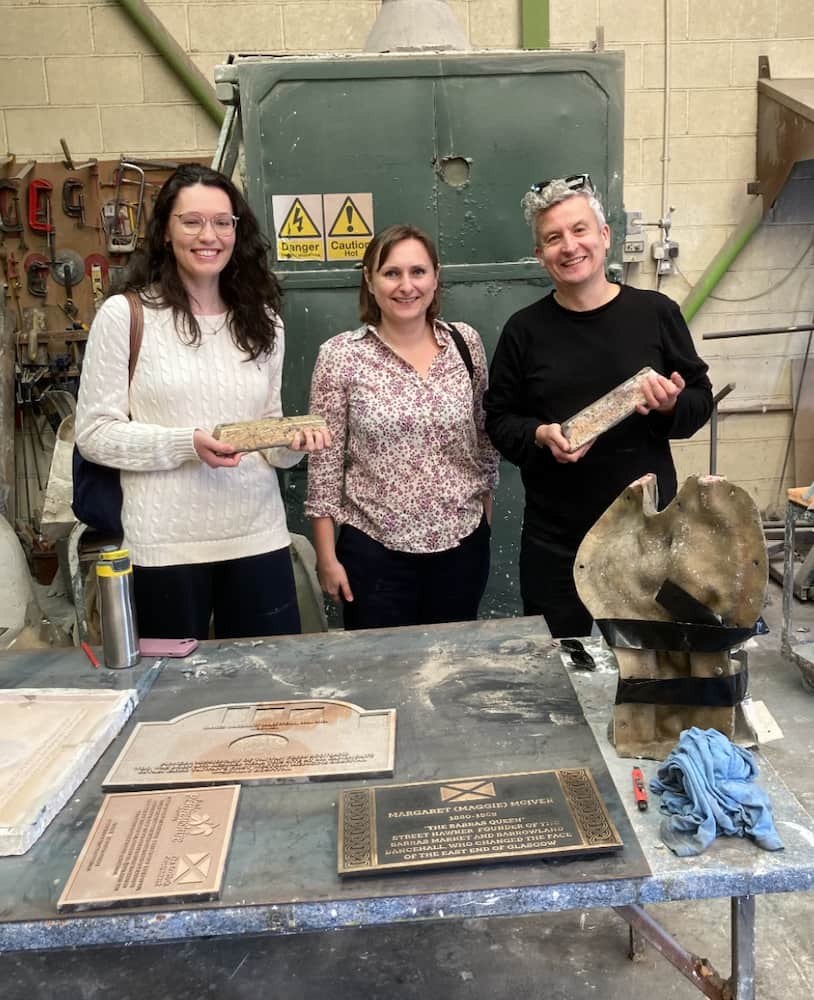
- Skye Duncan (Philosophy-Psychology)
-
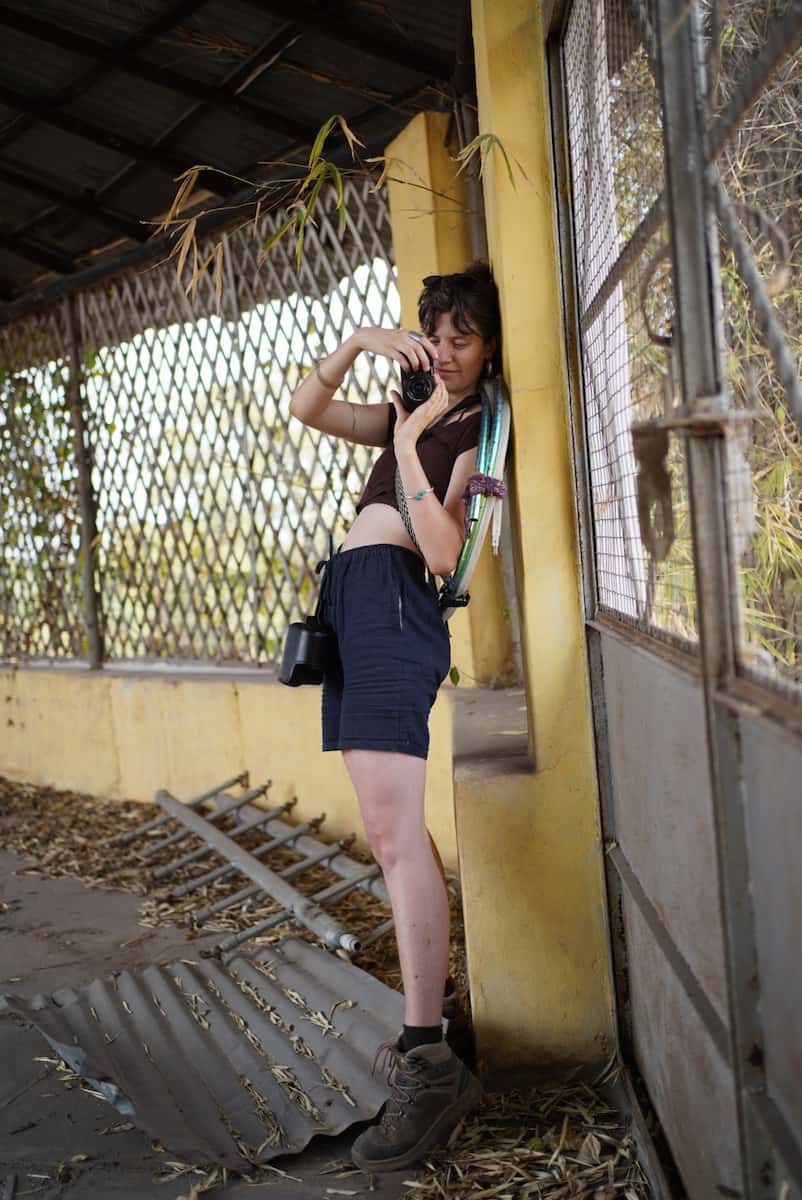
Skye completed her ABDN Internship with the community-led organisation Our Union Street.
What motivated you to apply for the ABDN internship with Our Union Street?
I went back to university after a 3-year gap in my education, from the start of Covid to 2023. Taking that time out allowed me to figure myself out without the pressure of committing to a 3+ year course, but, during that whole period I basically went from waitressing job to waitressing job, and I felt starved of meaning. So I made a pact with myself that when I did return to university, I would also commit to finding work and volunteer opportunities that were a step towards doing something interesting, new, or that aligns with my values.
The job description said that Our Union Street were looking for someone creative, who could research and write about historical figures around Aberdeen, and transform these stories into Augmented Reality experiences to bring the city's history to life.
I was drawn to it partly because it would allow me to work my content writing muscle, which I had worked a tiny bit in the past but was still very much a beginner in; partly because it seemed like a great way to get to know the city I'd be living in for the next four years; partly because it seemed to be quite a creative role.
But mainly, reading their white paper was really inspiring - I loved their community-based ethos, and I felt very aligned with their values.
As much as I was drawn to the internship, I also felt very intimidated - I don't know the first thing about Augmented Reality, my content writing experience has been more along the lines of informational blogging which isn't like storytelling at all, and my degree (initially Anthropology and Philosophy, now Philosophy and Psychology) doesn't relate as much as other courses could.
I'm so glad that I did go for it though, and I really believe that it's in these experiences where you feel at least slightly out of your depth that you are likely to learn and grow most.
What activities did you undertake? How has this experience complemented your academic studies?
During the internship I focused on telling the story of James Clerk Maxwell, who currently has a small plaque dedicated to him at the top of Back Wynd Stairs, right next to Primark on Union Street. I read through a bunch of online material and watched a couple documentaries on him, keeping a note of anything that could be used in the story.
Part of the purpose of this internship wasn't just to produce stories on historical figures in Aberdeen, but also to keep track of the process and refine it into a framework that could be used for future volunteers. At this stage of research, what that meant was testing to see how AI could be helpful, thinking about how this research should be organised, and from that creating a template that could be used in the future.
Next, I had to turn it into an 800-word story.
Out of curiosity, I tasked Chat GPT to write one with the research I'd gathered, and I wasn't very impressed. That being said, as I've played around with it more, I've discovered better ways of prompting it, and I have made much more use of AI for the subsequent scripts I've written.
I was fortunate that OUS already had some really valuable resources on how to structure a story, what ingredients are needed, etc., so after the first failed AI experiment I took their story writing template and looked methodically at how James Clerk Maxwell's story could fit into that structure. My first draft came out at about 2,000 words, and after whitling it down to the word count I went through several edits, sharing it with colleagues to get feedback.
When I reached a point where I was satisfied with the script, I started sketching out ideas for how to bring it to life in augmented reality, and created a 2D storyboard using AI-generated images. This also involved meeting with associates of Our Union Street who are pros when it comes to Augmented Reality, and gaging what was realistic and possible in AR.
After the internship ended, I continued on with OUS on a full-time summer placement which I am currently in the middle of. My focus has switched to creating a 3D animation for James Clerk Maxwell based on the 2D storyboard. This has involved learning Blender (a 3D animating software) from scratch - a very steep learning curve - and doing my best to create a 3D animation which can be translated into Augmented Reality by professionals with minimal effort.
In terms of how this experience has complemented my studies, I like to think that the script-writing will feed into my essay-writing. I feel that a lot of academic writing is unnecessarily dry, wordy, and abstract, so I want to challenge myself to keep my writing accessible and engaging. I also think that having played around with AI, I might use it more now to format my notes, to quiz myself, to help me develop ideas by treating it like a study buddy.
What was the highlight of your placement?
One highlight has actually been learning about the psychology of 'business storytelling' through Bob and Derrick (leaders of OUS who also run business storytelling courses). I found it so interesting to consider how important storytelling is, even in the realm of business, and my interest in this contributed to my decision to swap Anthropology for Psychology next year, which I'm incredibly excited for.
What advice would you give to anyone thinking about applying for an ABDN Internship?
Go for something for which, when you think about it logically, you know you can learn the skills on the job, but which makes you feel just enough out of your comfort zone that you wonder "oh my god but what if I'm not good enough yet?"
I say this because I definitely am prone to feelings of impostor syndrome, and what has helped me get over it (or rather not let it dictate my decisions) has been to reframe the way I think about it from "I feel like I'm unqualified and out of place, therefore I am not fit for this role, and I shouldn't pursue it" to "I feel like I'm unqualified and out of place, which means that if I can get this role, it will be an amazing learning experience, therefore I'm going to put my best foot forwards and see where that takes me."
I also recommend researching the company or charity you're applying to - does reading about them make you feel excited? Do their values speak to you? Mention what you like about their ethos or their mission in your motivation letter or in the interview. Get as excited and amped up as you can about it, they will really value enthusiasm, and it will come across in your application.
- Anna Dvorakova (History-Theology & Religion)
-
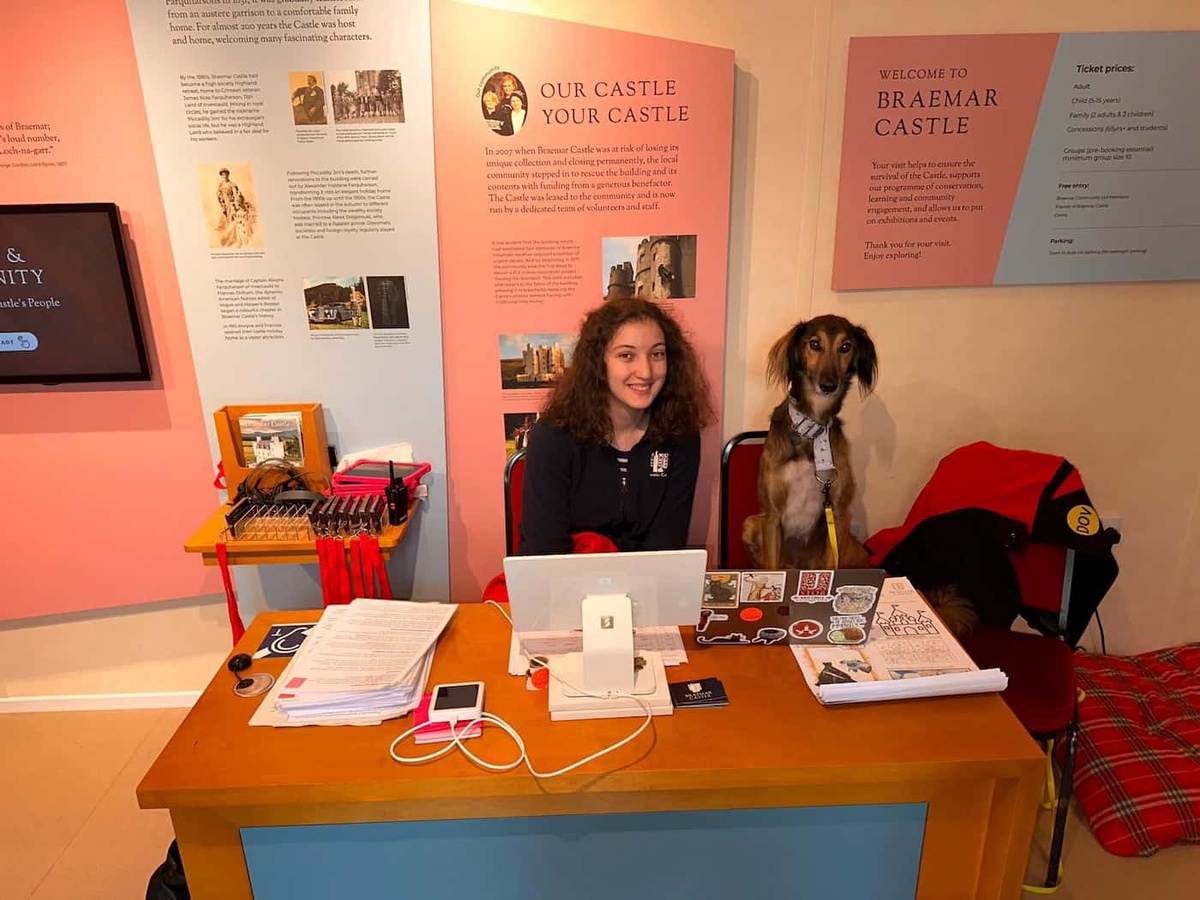
Anna completed an ABDN Internship at Braemar Castle in Aberdeenshire in the summer of 2024.
What motivated you to apply for the ABDN internship with Braemar Castle?
I was searching for opportunities that would help me figure out a path I would like to pursue in the future - I believe this is the best time to try new opportunities. Since I am interested in the heritage sector and popularising history to the public, the Braemar Castle Intern opportunity seemed amazing! Once I read more about Braemar Castle and its impressive history of ownership and the ambitious vision that the community has, I knew that this was a once-in-a-lifetime opportunity for which I had to apply.
What activities did you undertake? How has this experience complemented your academic studies?
I wrote a final report (as the outcome of my internship), which encompasses all aspects of my time at the internship based on my research. My responsibilities varied from creating visitor and volunteer questionnaires which I subsequently analysed and used the results for future improvement suggestions, to thorough research on the heritage sector and visitor behaviours, to designing flyers, leaflets, and children's worksheets, to working at the reception and essentially sorting out tickets and any visitors' needs to helping with the overall maintenance of the Castle. I was also responsible for translating our guide into Czech and facilitating a German audioguide by another University of Aberdeen student.
I enjoyed the balance between analytical, creative, and practical tasks, which definitely added variety to my predominantly analytical skillset nurtured in the academic environment.
This experience showed me that the general public is still interested in the Humanities, particularly history, and that volunteer work is something that this sector cannot function without, further motivating me to pursue my career and academic ambitions.
What has been the highlight of your placement?
Besides working with a passionate team of volunteers and staff, it would have to be meeting visitors from all over the world! Who would have thought one could meet Australians, Brazilians, Czechs, or Kazakhstani at a small castle in the heart of Scotland?
What advice would you give to anyone thinking about applying for an ABDN Internship?
Definitely use the Career and Employment Services the University offers. Their help and support during the application process, as well as throughout my internship have been amazing and truly helpful!
- John Ferenczy (Medieval and Early Modern Studies)
-
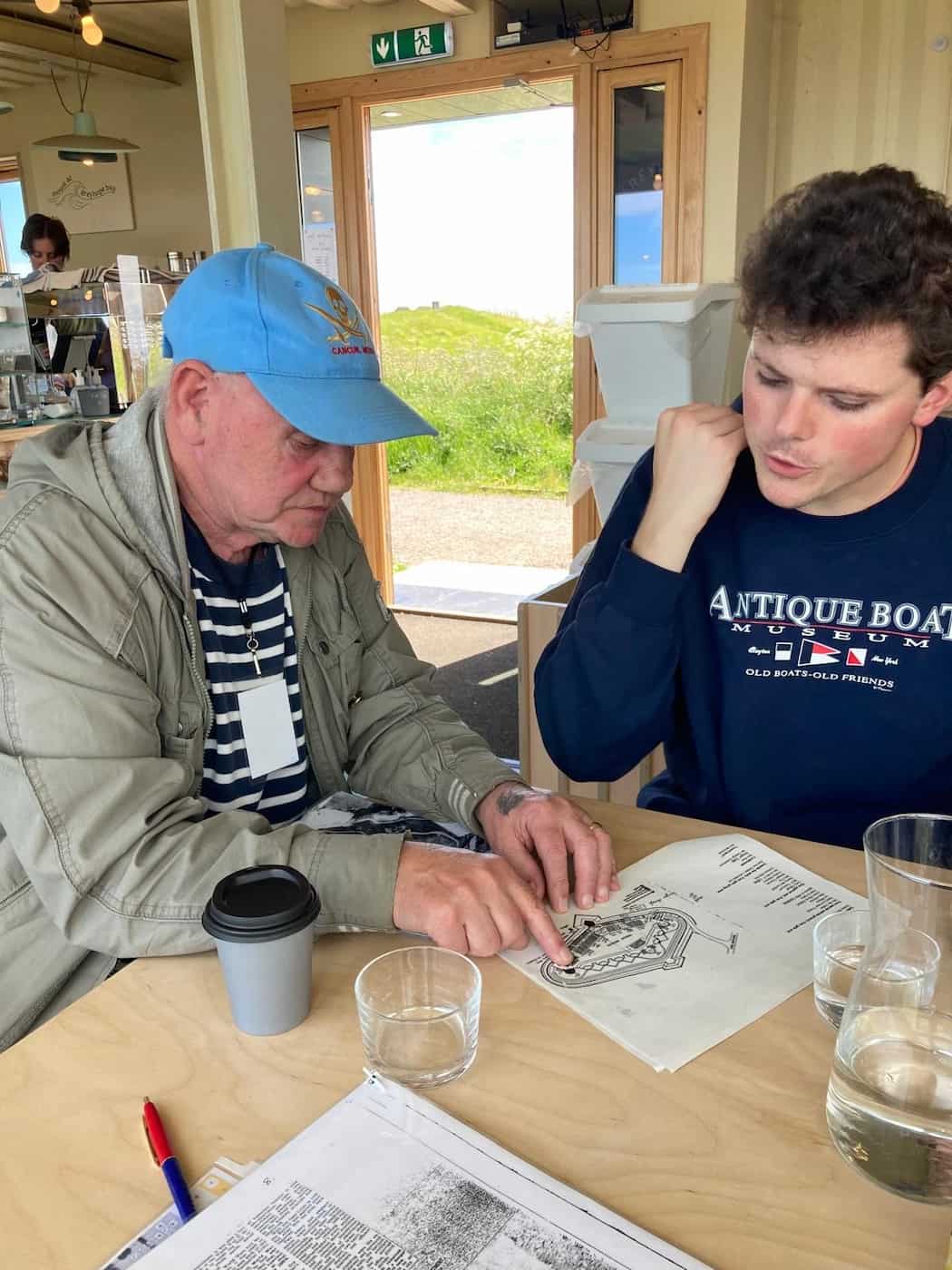
John completed an ABDN Internship as an Interpretation Officer at Greyhope Bay, Aberdeen in the summer of 2024.
What motivated you to apply for the ABDN internship with Greyhope Bay?
When I read about the Interpretation Officer internship at Greyhope Bay, I was intrigued by the open-endedness of the job description. As I learned more about the role, it became clear that this was an excellent opportunity to gain first-hand experience working at a historical site with the privilege of being relied upon to interpret it. While my primary interest is late medieval history, this was an opportunity to work on a project with a tangible impact on everyday people.
What activities did you undertake? How has this experience complemented your academic studies?
In this role, I attended events at the centre and met with community members to get a sense of what Torry Battery meant to them, and what they hoped to see in a trail interpreting it. I conducted research into the history of the battery to learn how the site has changed over the years and what remains. After doing my research, I assessed the current interpretation of the site and formed my own plan for a trail. My trail is intended to complement the City Council information boards that detail the area's history and ecology. Its design is minimal to keep the site uncluttered and intends to explain the different parts of the battery. To tell the stories of the local connections to the battery, I proposed an online video archive and interactive map to organise and give greater detail to the history of the battery. I created a map of the existing City Council information boards and a map of my proposed trail around the battery. For each trail location I photographed a potential post location and overlaid simple renderings of each post to create digital proofs of concept. I compiled all the plans and recommendations in a proposal report, which I presented to the team with a slideshow to display the graphics and maps I had made. This experience allowed me to use the research and writing skills that I've cultivated at university in area distinct from academia.
What has been the highlight of your placement?
The highlight of my placement was working with a closeknit team that allowed me to work independently but was always available for support. Key features of the trail's design came from brainstorming with the team to decide on the approach that the trail would take. Working with such enthusiastic people and being able to present a plan to them that met their needs and expectations was by far the most rewarding aspect of the internship.
What advice would you give to anyone thinking about applying for an ABDN Internship?
I would encourage students to apply to all the ABDN Internships that they think would be interesting or fun. I applied to three of the placements available and would have been happy to do any one of them. My experience with the ABDN Internship with Greyhope Bay was overwhelmingly positive and I suspect that every other intern would say the same.
- Conrad Funk (History)
-
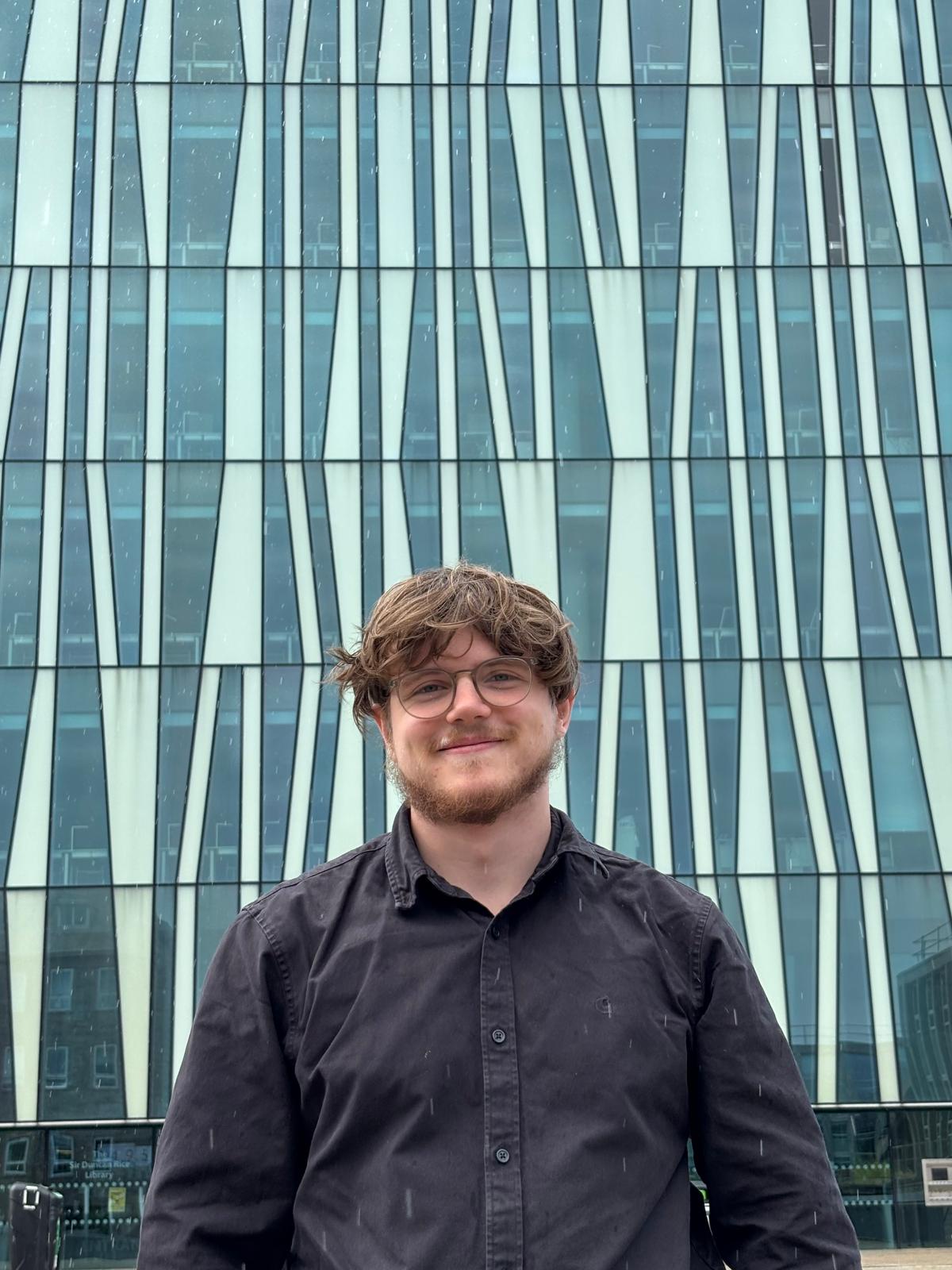
Conrad completed his ABDN Internship as a researcher for the Friends of the Sivell Murals in the summer of 2025. The murals, which decorate the former University of Aberdeen Students’ Union building in Aberdeen city centre, are an important, collaborative example of mid-twentieth-century Scottish painting.What motivated you to apply for the ABDN Internship with the Friends of the Sivell Murals?
My main reasons for applying were the skills I could develop and utilise in the internship, as I knew very little about the Sivell Murals themselves. To be more precise, it was especially the opportunity to further hone my research skills that motivated me, especially as preparation for my dissertation in the coming year. Adding to this, I was also keen to gain experience of close coordination with supervisors and managers given how essential it will be in any future career.
What activities did you undertake? How has this experience complemented your academic studies?
My key task was researching further information on the key artists involved with the murals using mainly digitised newspapers and then later compiling that information into a register. The main intention then was to deepen understanding and provide a helpful tool for further research.
This then will prove helpful for my later studies, as I now have a significantly better grasp of the resources publicly available and how to navigate them, easing any later research. Furthermore, the process of structuring my findings and maintaining consistent time management in research will doubtlessly prove essential for my dissertation.
What was the highlight of your placement?
I think it is hard to pick out just one, so I will instead choose two. Firstly, there was the excitement in finding those first results, in partially uncovering the mystery that surrounded James Hillocks, one of the key artists involved in the murals. That being particularly impactful towards the beginning, as any new findings would significantly reshape my understanding of the topic given, I knew comparatively little in the beginning.
Secondly, there were my meetings with my supervisor, Marion, which were always a pleasure. One talk where we talked about the fascinating world of campaign strategy particularly stays in mind, and I hope to learn more in the future.
What advice would you give to anyone thinking about applying for an ABDN Internship?
For this answer I’ll give the context that I also applied to several things last year but without much luck and was initially hesitant to try again this year. But in the end, I did try, and it did work out. So, my key advice is to keep trying despite those inevitable demoralising rejections because the next application could be the one that works out.
- Allie Glew (Art History)
-
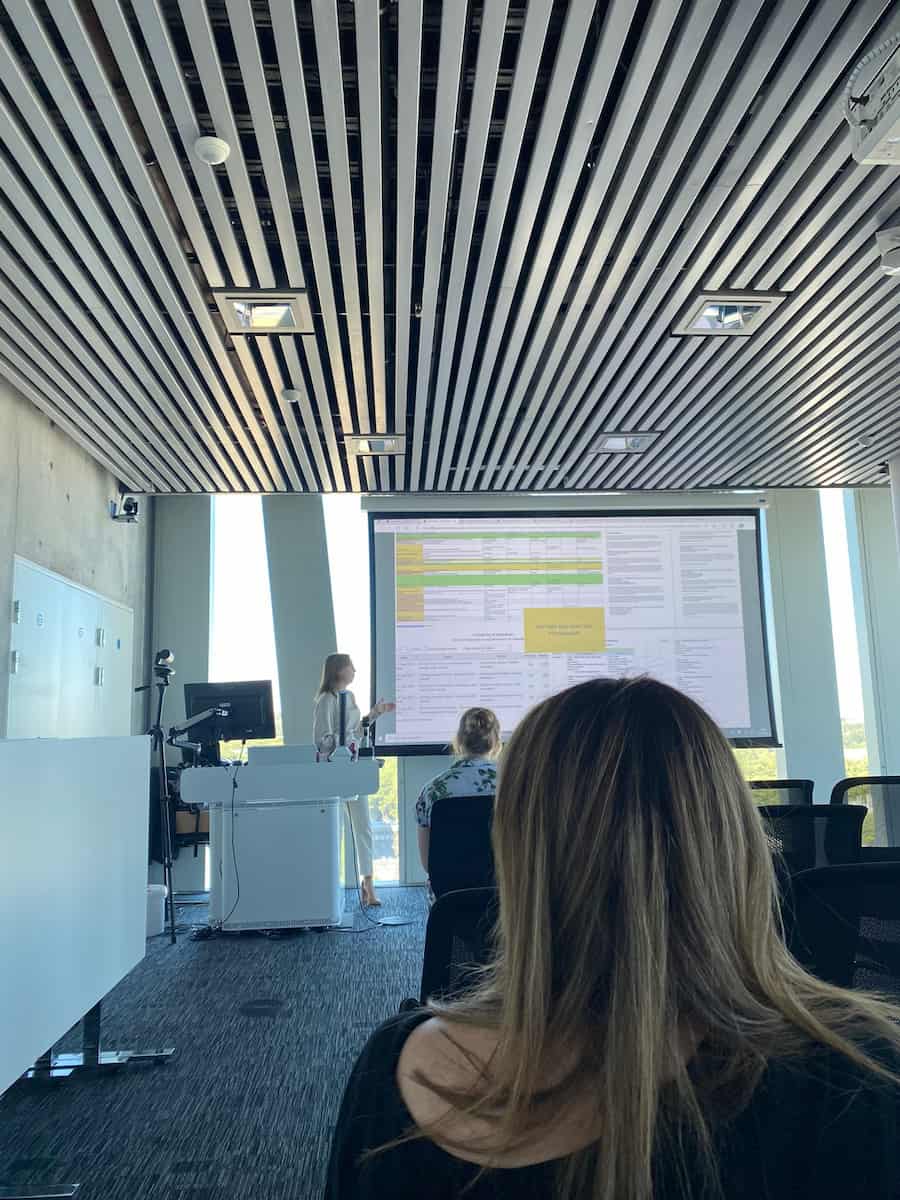
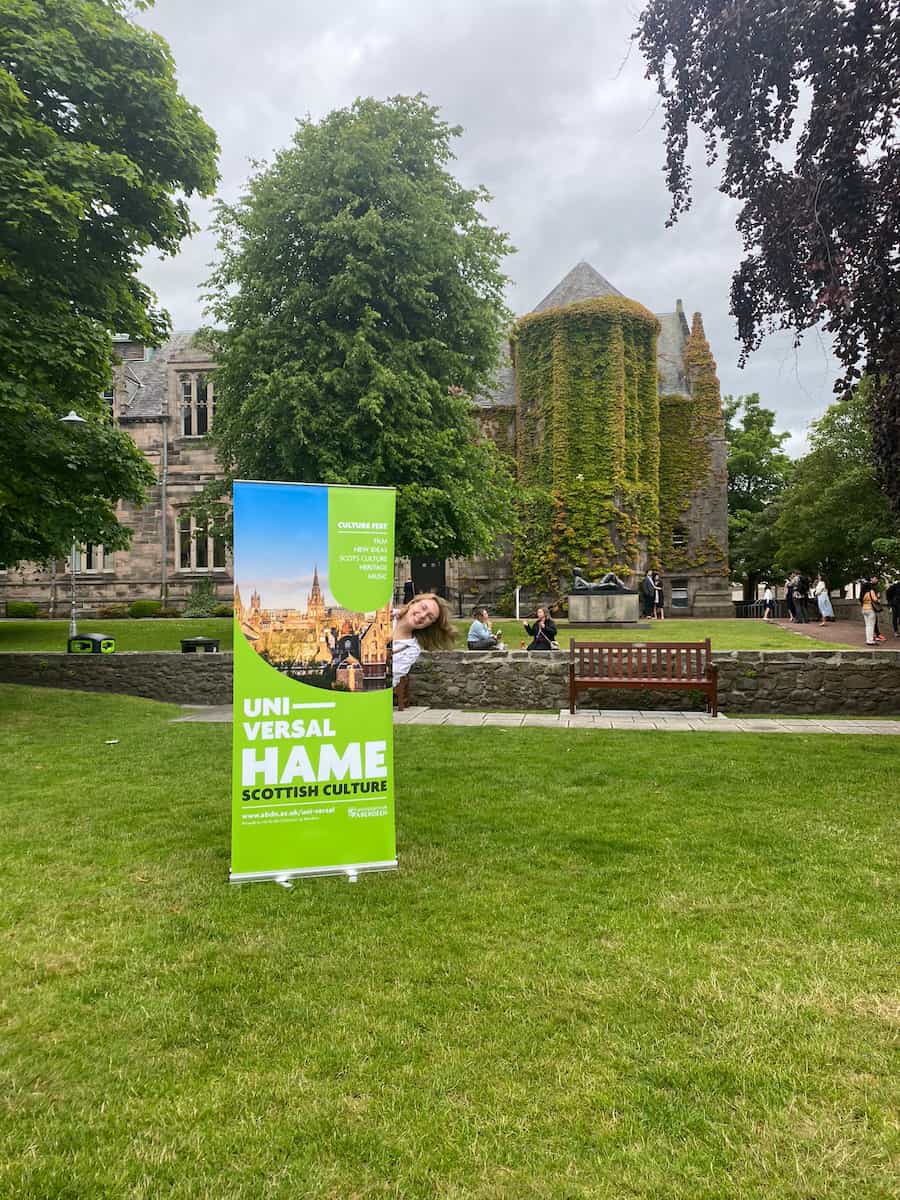
For ten weeks in the summer of 2022 I had the opportunity to intern with the University of Aberdeen's Events Team, helping them in the organisation and running of their UNI-Versal mini festival project. The UNI-Versal project was well underway by the time I joined, which was challenging; it meant that I had to hit the ground running in learning what needed to be done, how to do it and to get it done in an organised and efficient manner.
Though I worked on both Hame and the initial aspects of the Music Festival, I spent most of my time programming the History and Heritage festival. So, what exactly goes into programming a mini festival?
The first stages are about pulling together ideas for events. The History and Heritage festival is being organised in collaboration with the University's Museums and Special Collections team. We started with Microsoft Teams meetings every two weeks to discuss ideas, budgets and timings. An excel document was set up in the Teams shared files which was populated with ideas for events, potential venues and speakers/performers, and possible budget costs. One of my first jobs was to set up a colour code to use in this document that allowed us to narrow down which events were confirmed and going ahead, which events were still to be confirmed, and which events we decided to dismiss.
From this document, I started putting together the draft programme. This document lists all of the events by date and time, the location/venue, the price and whether booking would be required, and finally, a brief description of each event. I was required to keep in contact with various speakers and members of the Museums and Special Collections team to confirm details, source images for the programme and promotion, and make sure they were all happy with the timings. This document, along with the images, was sent to the graphic design team, who put together the final pdf programme, which would be used for promotion.
At the same time, I put together a similar document, listing the events, dates and times, locations and venue capacity, which would be used for setting up the ticket booking system Ticketsource (another one of my tasks).
Once the Graphic Design team had completed a first draft of the programme, they sent it back to us to double-check that all of the details were correct. This part of the process, along with setting up the events on TicketSource, required a lot of attention to detail - it's an extensive document. There is always something that gets missed or mixed up, so we went through about thirteen versions before we could finalise it! And that could be for something as simple as removing a letter from a word (do not ask the Graphic Design team about the spelling of the Cruickshank Botanic Garden!).
We launched the festival online in the first week of August (and the penultimate week of my internship). It was very satisfying to see all those weeks' worth of work come together to be put online for everyone to see.
- Rhona Grant (History)
-
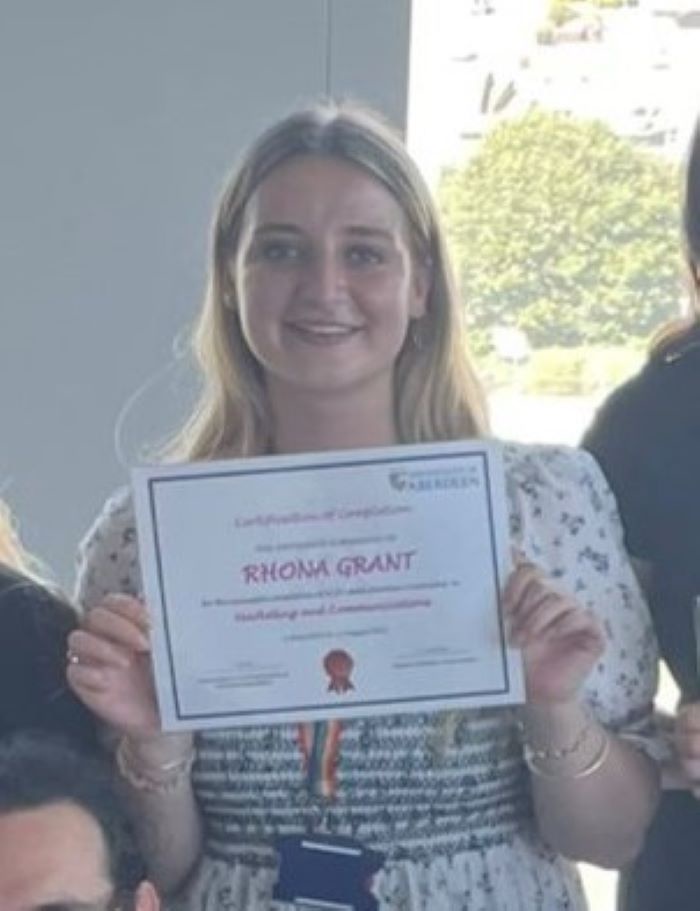
For ten weeks in the summer of 2023, I was given the opportunity to work as a marketing and communications intern within the Careers and Employability Service. The purpose of my internship was to audit the current marketing activities of the Careers and Employability Service, to establish new materials and templates, and to make recommendations as to how the service can better communicate, promote its activities, and support students. This was actualised by researching and analysing the engagement data from the Careers and Employability Service including: emails, appointments, pathways, events, and social media. From this data I was able to create 'pressure point' calendars that depict when students are interacting most with the Service. I also made 'heatmaps' of when the best time and day to send out communications to students is based on their usage of CareerConnect. I did internal and external market research including interviewing the current advisers, facilitating focus groups with other interns, speaking with differing university departments, and speaking with people from other university Careers Services. I also helped to create a 'themes calendar' of which all marketing materials in the next year for the Careers and Employability Service will be in line with. I created social media content including a proposal for the Careers and Employability Service to have an Instagram, and lastly, I created an intern report of all my findings and suggestions for the future.
So how has this internship impacted me and furthered my career goals?
Having studied History and now completing an Accelerated LLB, I was aware that this internship was a slight departure from my career aspirations. Thus, my hope for this internship was that I would gain transferable skills that I will be able to take with me and apply in future opportunities, which I feel confident is the case. Even softer skills I've gained like understanding office etiquette and expanding on skills I felt I already had to an extent, such as commercial awareness, I know I will be able to take forward with me. I thoroughly enjoyed being able to use my brain in different ways and to take on the challenge of something that didn't necessarily feel within my wheelhouse. What I realised whilst doing this internship is that I really enjoy learning beyond the classroom, I enjoy a challenge and I enjoy being required to think about things differently. Realising this more has had a positive impact on me and has really made me think more about how I want my future career to encourage this. One of the other things I really enjoyed and that has been such a great asset to my internship experience was getting to know the other interns across the University.
Overall, I think this internship has been impactful as it has provided the opportunity for me and other students to gain practical skills that will benefit us in our future professions. I think that the Aberdeen Internship Programme is very beneficial to students and university departments alike, and I think the programme encourages students by allowing them to gain experience, skills and confidence that will benefit us as we plan our futures.
- Finja Hennicken (English-Philosophy)
-
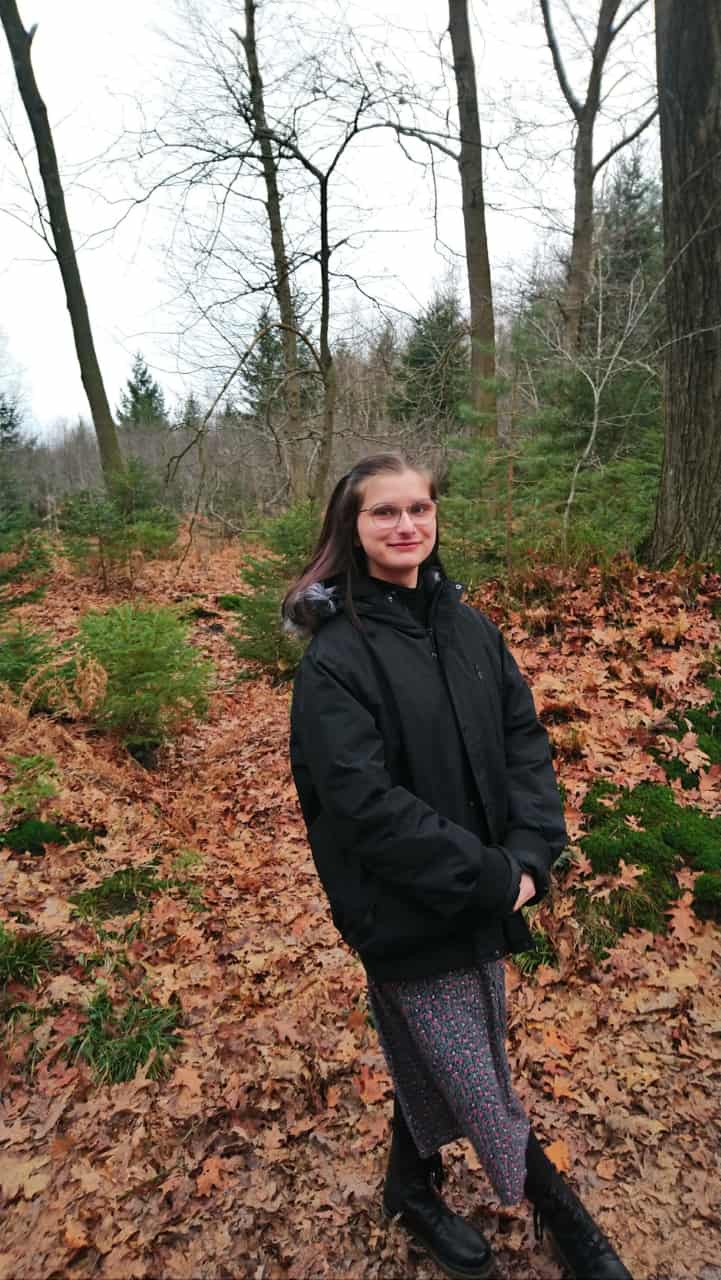
For 2022, I decided I wanted to get a summer internship. If you're like me, the summer break feels way too long to be idle for all of it and I was looking to either get a job or get some work experience, ideally both in the form of a paid internship. As an international student I had the option to look for internships both in the UK and my home country, however, I didn't like the prospect of having to organise temporary accommodation while also dealing with a new professional environment and not having any friends around. Thus, the Aberdeen Internship programme was a perfect fit for me as it meant I could stay in Aberdeen for the summer, and it is also one of the few paid internships around. The Aberdeen Internship programme is organised by the Careers and Employability Service and provides opportunities for 10-week paid internships across the University.
The job advertisement of my project asked for someone 'with a passion for storytelling' which immediately caught my attention as I am an avid reader and writer, writing my own projects, as well as for the Journal of Matters Relating to Felines (or CatMag). The latter was actually what intrigued my interview panel the most, showing that you can and should include relevant hobbies in your CV. The application process was quite straight-forward. I had to send in a CV, a covering letter and references, got invited to an interview and two weeks later received and email that I had been offered the position. If you are nervous about the application process, don't be! (But also, so was I.) There are great resources on the University's website which among other things can help you with your interview preparation and with building an effective CV, covering letter, and LinkedIn profile. I had also participated in the University's career mentoring scheme and my mentor has helped me immensely with becoming more confident and expressive in my applications.
I got the email confirming my internship position at the airport while waiting for my flight home and after checking about a thousand times that my eyes weren't deceiving me, broke out into a little happy dance. I kept on breaking out in little happy dances in my seat during the flight, and the rest of the day - probably to the disconcertment of the other passengers. I was too happy to care. However, after the initial bliss, the inescapable worrying set in. What exactly was I going to be doing? (Note to myself and others: save job descriptions!) What if I overslept on the first day? And what on earth is business casual? Turns out, I did not need to worry at all. On our first day, all the interns were given an induction by the Careers and Employability Service team who alleviated our doubts and fears and answered all our questions. My office, the Development Trust & Alumni Relations office, gave a similarly warm welcome which I tried repaying by bringing in muffins the next week. Luckily, I did not get hired due to my superior baking skills as the taste of my muffins belied the feelings I meant to convey - how excited I was to work for and with the team, how comfortable I felt in the office and how nice everyone had been from the start, offering to include me in all office related activities. (Note to self and others: Don't add flour and milk to you baking mix without measuring!) Though different offices have different professional environments, you'll be able to learn quickly how your workplace manages things. For example, my office used first names for everyone, and the business casual dress code ranged from the more business to the more casual side.
In the first week of our internship, we were asked to work on a development plan in which we reflected on the skills we would be able to refine or gain during our internship. In order to complete it, I asked for my job description again and that's why I am now able to tell you that my project was to organise, set up and populate a content bank. I created content, specifically donor impact stories and alumni blogs, but also videos and social media posts for the Development Trust & Alumni Relations channels and blogs. I was left to work on my projects independently with enough support so as to not feel overwhelmed by the new environment. This kind of trust as well as the encouragements that we were the people chosen for these positions for a reason really gave me the confidence to fully immerse myself in the tasks I was given. I gained valuable experience in many different areas that I would not have been able to gain in the same capacity without this opportunity.
- Nicole Cogan Mclellan (Art History)
-
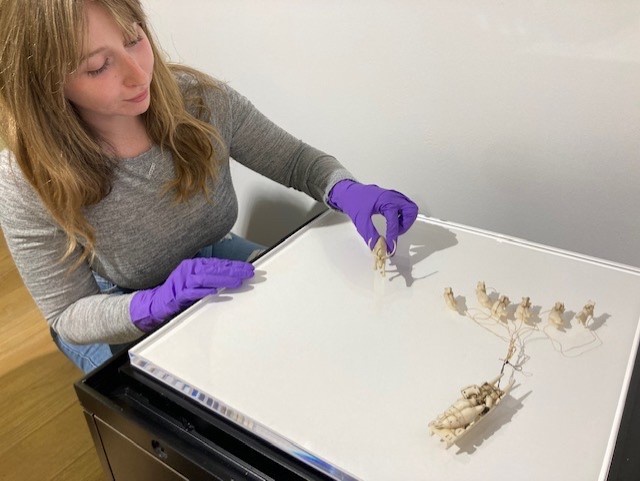
My name is Nicole and for 10 weeks in the summer of 2022, I was an intern with the University's Museums and Special Collections. The aim of my internship was to improve the visitor experience of Digital & Information Services, with a focus on sustainability and accessibility.
This internship seemed like it was made for me, as an Art History student going into my final year, my career ambitions heavily focus on the heritage sector. From a personal perspective, sustainability and accessibility are concepts that are close to my heart, and I was excited to see how the various elements of this internship would weave together.
After our intern induction, I got to sit down with every member of the department and spend time learning what their specific role entails. This included such perks as getting a behind the scenes view of the Museums and Special Collections in all sorts of stores across campus, and in Marischal College. It was a really great opportunity to see the inner workings of this sector.
My main focus throughout the internship was creating an action plan to aid the department in its attempt to secure a Green Tourism Award. The Green Tourism Award is an official recognition of your institution's sustainability efforts. For me, this covered social media, training, and public outreach. While there is still a long way to go, I think we've definitely taken a step in the right direction.
In line with my action plan for the Green Tourism Award, I created social media content relating to museums and sustainability. I assisted with promoting the Old Aberdeen Library in the Sir Duncan Rice Library as a sustainable and helpful resource for staff and students, as well as the local community in Old Aberdeen. I also assisted in curating accessible webpages for the University's Gallery and newly re-opened Zoology Museum, as well as helping out with exhibitions.
I got to learn some new skills, which really helped me to engage with my internship. I got to create some content for social media which was a fun creative outlet. I made action plans, which I had never done before. They proved to be very useful for actively measuring what I was doing and what still needs to be worked on even after I leave. I also had the opportunity to attend workshops online with various organisations and connected with some interesting people in the sector.
Before applying, I already knew that I had an interest in this sector but now I know that this is what I want to pursue when I finish my studies. The insight I gained from each person in my department was invaluable and provided me with so many opportunities to learn and grow.
The people that I worked with throughout this experience are what made it what it was. I was lucky to have not one, but two, line managers who supported me the whole way through. Every single person in the department was incredibly kind and willing to help me and chat to me about what they do. It was an amazing 10 weeks!
- Philip Nicol (History-International Relations)
-
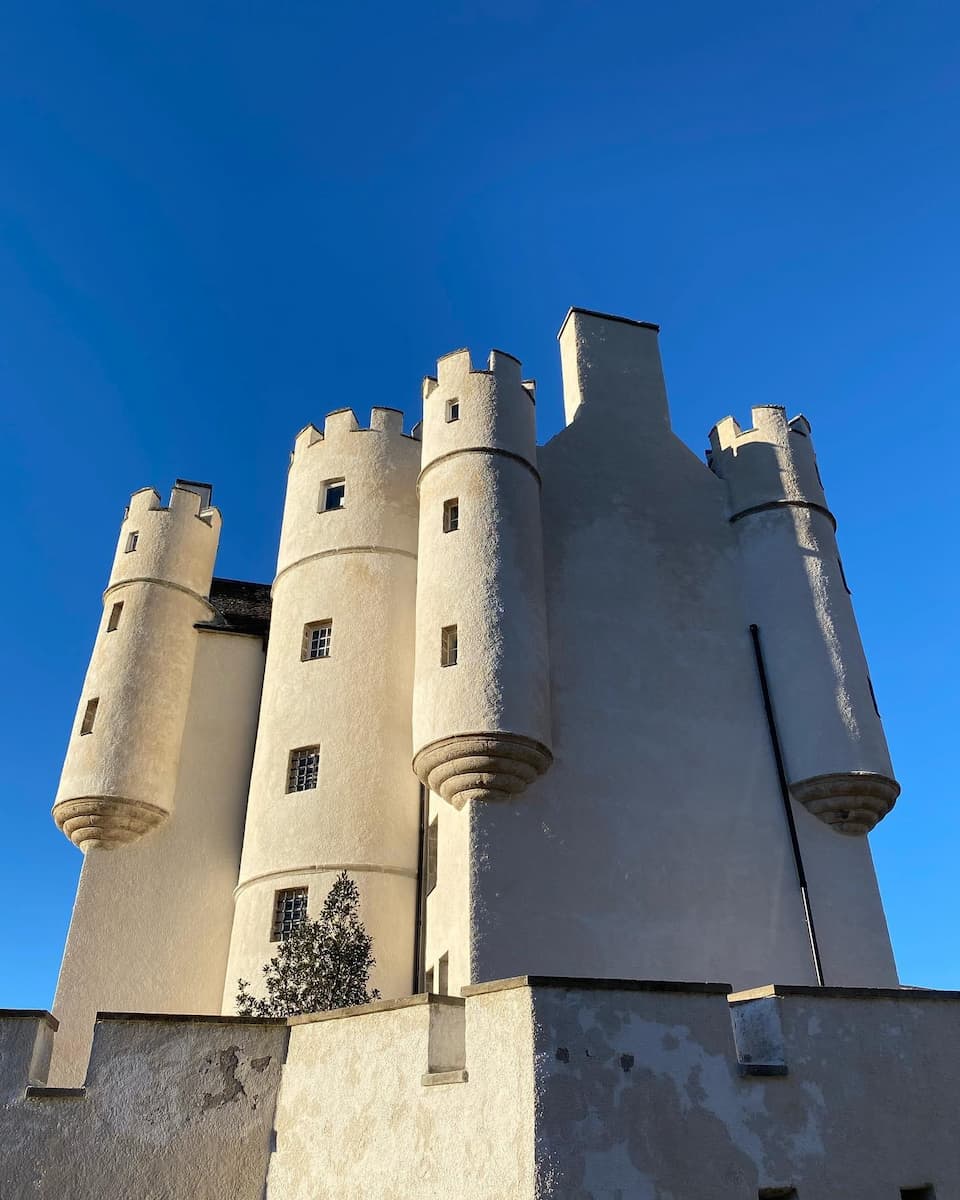
What was the aim of the project?
Braemar Castle is currently being restored and is due to open to the public again in 2024. Alongside the physical conservation works, the Raising the Standard project exists to transform the heritage of Braemar Castle and turn it into both an attractive tourist destination and a productive resource for Braemar and the surrounding region.
What was your role?
My role was to plan and conduct an oral history project and see this process through from start to finish over the course of five months.
What did this involve?
Conducting interviews with members of the community to gather stories of the castle's heritage and its significance to the local community. I developed interview questions and other materials, as well as connecting with members of the community in preparation for interviewing.
I gained a wealth of experience including project delivery, safeguarding, data protection and confidentiality standards in community research. I was required to transcribe interview data and edit recordings for archiving and use in sound instillations. Throughout my internship I was contributing to the wider archival material of Braemar.
What was the highlight of your experience?
Getting the opportunity to speak with, and interview, a wide range of people who have lived fascinating lives. Once the new centre has opened, my work will form part of the exhibition, and I look forward to visiting and hearing the stories I collected.
What advice would you give to other students considering an internship or looking to volunteer in this area?
Go for it! It is a lot of hard work but hugely satisfying to see your completed work and know you have contributed to wider project which will have a significant impact on the community and beyond.
What skills has this experience helped you develop?
I developed high level of oral history skills in a short space of time thanks to an oral history training course I completed which was run by the University of Strathclyde. This experience also hugely enriched my networking and interpersonal skills.
Has this experience influenced you career plans?
Most definitely. Upon leaving university, I was largely unsure what job I would go into. I ended up getting a fixed term contract with the National Trust for Scotland at Culloden Battlefield. A full-time administrator job at the property came up and I applied for this. At my interview, this internship was a topic of interest, and I was given the job.
Upon acceptance of the role, I was told that the experience I gained from this internship played a huge part in me being offered the job. I have been in this job since the start of October 2023 and am thoroughly enjoying the responsibility given to me in the day-to-day running of the National Trust's most profitable property.
- Robbie Williamson (Art History-English)
-
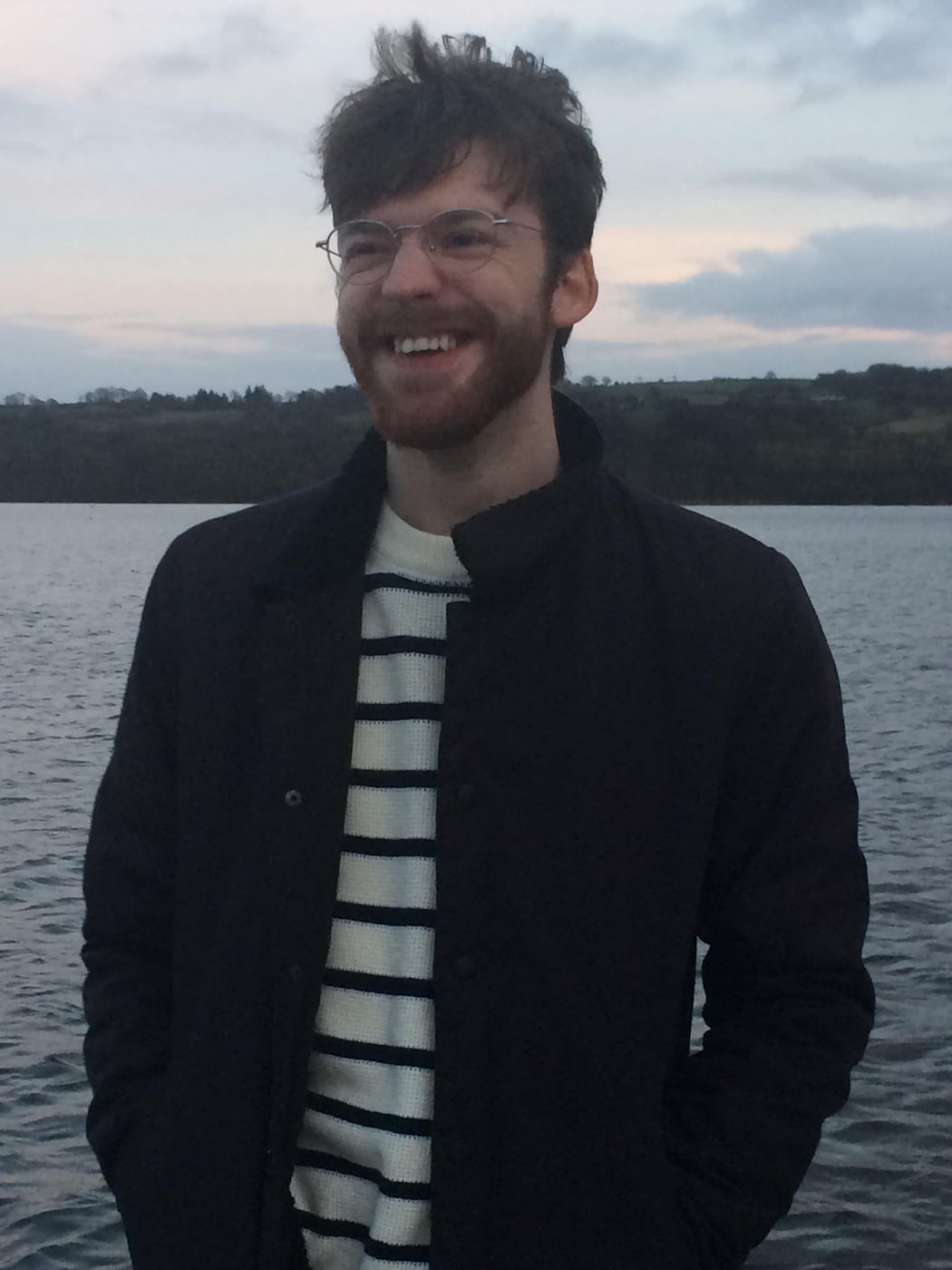
Robbie participated in the BP Tutoring Scheme during his degree.
What attracted you to the BP Tutoring Scheme?
I have been interested in pursuing a career in teaching for some time and I wanted to gain some experience in a classroom setting. I had taught English as a Second Language at a summer school where I led the classes and that was a great opportunity to experience what teaching in a classroom would be like. However, universities like applicants for the PGDE to have had some experience in a Scottish classroom. The BP Scheme places its members in an Aberdeen city or Aberdeenshire school where they spend half a day at their placement, once a week for eight weeks. The scheme appealed to me because the focus is on participating in the classroom. It's a great opportunity to experience what it might be like to teach.
Where were you placed, and what activities were you involved in?
I was placed in St. Machar's Academy, just a stone's throw away from the university. Here, my role was a classroom assistant in the English department where I helped the pupils with their classwork. The team were very helpful about placing me in classes where I would have the opportunity to experience a variety of activities and observe different styles of teaching. I helped juniors to write biographies about celebrities and assisted senior classes with their preparations for their forthcoming exams.
One of the main activities that I assisted with each week was helping the pupils to complete a piece of coursework called the Added Value Unit. Students from different classes would trickle in and out of the room and the teacher and I would guide them through the activity. As the weeks continued and I learned more about the module, I started to lead the class, taking students from the beginning of the module to its conclusion. By completing the Added Value Unit, the students were guaranteed to obtain an English qualification at the end of their studies. I was pleased to be given the responsibility of leading a task like this and it was fulfilling to know that I had helped pupils to achieve a qualification.
What was the highlight of your placement?
St. Machar's Academy has links with Aberdeen Football Club and for one of the classes students were invited to tour Pittodrie Stadium. There they learned about the club's history. Many of the students were fans and some held season tickets; they were particularly interested in the trophy room that held gifts exchanged by rival teams before a game.
Additionally, we were given a presentation about the programme that the club runs to assist vulnerable individuals living with conditions like dementia. The Football Memories Programme uses reminiscence therapy, providing objects from their archives to help trigger the participant's memories about football that can lead them to remember other aspects about their past. The students and I were shown and allowed to handle various materials that the team uses during therapy, ranging from flyers to homemade rattle clackers. It was interesting for them to learn about the beautiful game's past through these memory objects.
What advice would you give to anyone thinking about signing up for the BP Tutoring Scheme?
Although the scheme places its participants in a school and involves working with children and young adults, it is a fantastic opportunity to learn new skills that can be applied to a wide range of jobs. Over eight weeks, I have built working relationships with teachers and pupils alike, I have honed my ability to adapt. These are strengths that can be applied to many sectors. I would recommend the scheme to anybody interested in improving their skillset and not only those interested in teaching.
For someone interested in teaching, be prepared to ask questions about the profession. The insight that the teachers provided was very helpful as they talked about their experiences in teacher training and their opinions on pedagogy. We talked about the texts that they taught in class and how they approached them. The scheme appears on your enhanced transcript and I have talked about my time at St. Machar in every interview I have done for the PGDE so it is a valuable opportunity.
